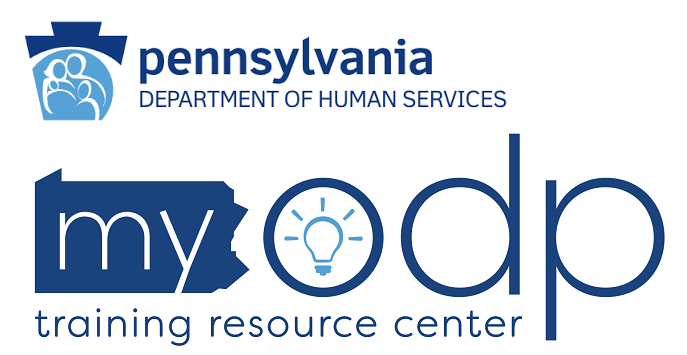Positive Approaches Journal, Volume 12, Issue 1
Ford | 14-21

Volume 12 ► Issue 1 ► May 2023
The Importance of Peer Support and Stigma Awareness: My Journey in Mental and Physical Health
Jamal A. Ford
At 14 months old my daughter was diagnosed with a brain tumor. We were told that she would likely succumb to her illness between the ages of five and seven. When we got this news, my now ex-wife and I were 23 years old and newly married. When you hear news like that, it is the loneliest feeling in the world. We did what we needed to do. We cared for our little girl. We tried to make her life as “normal” as it possibly could be, as long as we possibly could. When she was first diagnosed, I was working in the culinary field – a trained chef by trade. I switched professions, unknowingly, at the time, and that is when I first started working in mental health.
Time continued to pass. When she was six, her tumor had begun to grow at a rate where her doctor said she would not live through the end of the year. Her tumor was classified as inoperable, so we did not know what to do. It could not be removed but there was a small chance that someone could go in and debulk it, giving her brain stem some relief. We chose that option because it was the best one presented. September of that year, she was due to begin second grade. She attended the first day of school and then, the very next day, underwent the surgery we hoped would save her life. Life would never be the same after that.
She made it through the surgery, though she remained in a coma for six months after. She was put on hospice, and we were told that she would pass in that state. Then one day she decided to open her eyes and return to us. Still the same loving little girl she was before she went to sleep, but now she presented with a host of mental health and physical health issues that she did not have prior to the surgery. She had to learn to walk and talk again, attended frequent appointments with an occupational therapist, physical therapist, speech therapist, teachers, etc... It was overwhelming. When she was in the hospital, we only had to worry about our own jobs. Things changed drastically once we were released and back home.
I was ignorant to the stigma that existed when it came to mental and physical health. I had never really had to deal with the system in that manner. We did not know where to go for help and resources were not offered. We were told that we made too much money as a couple to qualify for assistance and so we struggled. Then we stopped asking for help. We started to just handle things on our own, relying on very few people for anything. As she grew, her condition worsened. She lost her ability to walk, talk, and eventually became bed ridden. She lived to be almost 16 years old. We could not receive home care for her until the last two years of her life. As parents, we suffered through depression, anxiety, and lack of communication. We took care of her and lost ourselves in that process because no one cared. At least, that is how it felt. We stopped seeking help, which is a very real effect of stigma. As a result, we suffered through until our daughter passed in 2015, after a very long, hard fought battle.
My story is not different than many families out there. The circumstances change but the feelings of loneliness, being overwhelmed, feeling like a burden, and feeling lost are the same. This is why shedding the light on stigma and letting people know that supports do exist is very important in the work that we do. I feel that if I had known more about the effects of stigma and the benefits of peer support, life might have been much different. Having people who can relate to what you are going through, point you to resources that may be unknown to you, and just lend an ear can be life changing. Knowing that you are not alone and learning to advocate for your needs is such an important part of those who are on a mental or physical health journey that cannot be overstated.
Here are some of the effects of stigma on mental health as experienced firsthand:
- It prevents people from seeking help. Many people who struggle with mental health issues are afraid or ashamed to admit that they need professional help, because they worry about being judged, rejected, or labeled as weak, crazy, or dangerous. This can delay or prevent them from getting the appropriate treatment and support that they need, which can worsen their condition and increase their risk of developing other problems such as substance abuse, isolation, or suicide.
- It reduces the quality of care. Even when people do seek help for their mental health problems, they may face stigma from health care providers, who may have biases or stereotypes about mental illness. This can affect the quality of care that they receive, such as being misdiagnosed, under-treated, over-medicated, or discharged too soon. It can also affect the relationship between the patient and the provider, making it harder to establish trust and rapport.
- It affects self-esteem and social relationships. People who experience stigma for their mental health problems may internalize the negative messages they hear from others, and start to believe that they are worthless, defective, or hopeless. This can damage their self-esteem and self-confidence and make them feel isolated and lonely. They may also face discrimination or harassment in various aspects of their lives, such as education, employment, housing, or legal rights. This can limit their opportunities and choices and affect their social and economic well-being.
- It creates a cycle of stigma. The stigma around mental health can create a vicious cycle that reinforces itself. For example, people who have mental health problems may avoid seeking help because of stigma, which can make their condition worse and more visible to others. This can then increase the stigma that they face from others, which can make them more reluctant to seek help again. This cycle can perpetuate the myths and misconceptions about mental illness and prevent people from understanding and accepting it.
Stigma around mental health is a challenge that affects millions of people around the world. It is a barrier to recovery and wellness, and a source of suffering and injustice. It is also a challenge that can be overcome by raising awareness, educating ourselves and others, challenging stereotypes and discrimination, and supporting people who have mental health problems. By doing so, we can create a more compassionate and inclusive society where everyone can thrive.
Why is peer support important?
Peer support is a form of mutual help that involves people with similar experiences of mental health challenges supporting each other. Peer support can take place in various settings, such as online communities, support groups, peer coaching, or peer workers in mental health services. Peer support can offer many benefits for people who are struggling with their mental health, such as:
- Connection: Peer support can reduce the feelings of loneliness and isolation that often accompany mental health problems. By connecting with others who have gone through similar situations, peer support can provide a sense of belonging and understanding.
- Validation: Peer support can help people to feel heard and accepted for who they are. By sharing their stories and emotions, peer support can offer a safe space where people can express themselves without fear of judgment or stigma.
- Normalization: Peer support can help people to realize that they are not alone or abnormal in their experiences. By learning from others who have faced similar challenges and overcome them, peer support can foster a sense of hope and possibility for recovery.
- Purpose: Peer support can give people a sense of meaning and direction in their lives. By helping others, peer support can boost self-esteem and confidence. By receiving help, peer support can empower people to take charge of their own well-being and goals.
- Hope: Peer support can inspire people to believe that change is possible and that they can overcome their difficulties. By seeing the examples of others who have recovered or improved their mental health, peer support can motivate people to pursue their own recovery journey.
Peer support is not only beneficial for the individuals who receive it, but also for those who provide it. Research has shown that peer support workers (PSWs), who are trained and employed to use their lived experience to help others, can experience positive outcomes such as:
- Improved self-care and coping skills
- Increased social inclusion and community involvement
- Enhanced problem-solving and communication skills
- Greater access to work and education opportunities
- Higher levels of satisfaction, optimism, and acceptance
Peer support is based on the principles of mutual respect, empathy, reciprocity, and recovery. Peer support recognizes the value of personal experience and the potential of every person to grow and heal. Peer support is not a substitute for professional treatment, but rather a complement that can enhance the quality and effectiveness of mental health care.1,2
Peer support is important because it can offer a unique perspective and a different kind of support that professional services may not be able to provide. Peer support can help people to feel less alone, more understood, more empowered, and more hopeful about their mental health.
Mental health is a vital aspect of our well-being, but it is often neglected or misunderstood by many people. One of the reasons why mental health is not given enough attention or support is the stigma that surrounds it. Stigma is a negative attitude or belief that leads to discrimination or prejudice against people who have mental health problems. Stigma can have serious consequences for individuals and society, and it is a challenge that needs to be addressed. Our children deserve the care they need. Our families deserve the support. Normalize mental and physical health resources and end the stigma that surrounds those in need. Our world will be a much better place as a result.
References
1. Mead, S., Hilton, D., Curtis, L. “Peer Support: A Theoretical Perspective.” Accessed May 8, 2023. PSRJ article.PDF (intentionalpeersupport.org)
2. Substance Abuse and Mental Health Services Administration. Peer Support Workers for those in Recovery. Accessed May 8, 2023. Peer Support Workers for those in Recovery | SAMHSA.
Biography
Jamal joined the PA Care Partnership in August of 2018 after spending seventeen years at a residential treatment facility working with court adjudicated young men. Working in the RTF, he acquired a wealth of experience in the various positions he worked, including direct care, ropes course coordinator, director of therapeutic activities, and one-to-one care. He helped to implement the Sanctuary Model at the RTF which led to an opportunity to learn about Trauma-Informed Care from Lakeside Global Institute. His personal experience, along with his work at the RTF, fostered a desire to deepen his understanding and further his advocacy for youth voice. Jamal is currently continuing his education at Morehouse College and continues to use his experience and knowledge to help counties implement the system of care philosophy.
Contact Information
Jamal A. Ford
PA Care Partnership - Statewide Systems of Care Grant
Certified Peer Support Specialist (CPSS), Youth Resources Coordinator
fordj3@upmc.edu or c-jford@pa.gov




